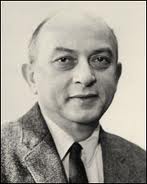A Quote by Thomas Jefferson
He who knows nothing is closer to the truth than he whose mind is filled with falsehoods and errors.
Related Quotes
Statement of Being. There is one Mind, and I AM that Mind. That Mind is eternal, and it is Life. I am that Mind, and I am ETERNAL LIFE. That Mind knows no disease; I am that Mind, and I am HEALTH. That Mind is the source of all Power, and cannot know doubt nor fear; I am that M ind, and I am POW ER and PEACE. That M ind knows only Truth and knows ALL truth; I am that M ind, and I am KNOW LEDGE and WISDOM . All things created and uncreated, are in that Mind; I am that Mind, and I am WEALTH and PLENTY. I am the WAY, and the TRUTH, and the LIFE; the LIGHT in me shines out to bless the world.
Among the calamities of war may be justly numbered the diminution of the love of truth by falsehoods which interest dictates and credulity encourages. A peace will equally leave the warrior and the relater of wars destitute of employment; and I know not whether more is to be dreaded from streets filled with soldiers accustomed to plunder, or from garrets filled with scribblers accustomed to lie.
We may... have to relinquish the notion, explicit or implicit, that changes of paradigm carry scientists and those who learn from them closer and closer to the truth... The developmental process described in this essay has been a process of evolution from primitive beginnings-a process whose successive stages are characterized by an increasingly detailed and refined understanding of nature. But nothing that has been or will be said makes it a process of evolution toward anything.
Life and death are nothing but the mind. Years, months, days, and hours are nothing but the mind. Dreams, illusions, and mirages are nothing but the mind. The bubbles of water and the flames of fire are nothing but the mind. The flowers of the spring and the moon of the autumn are nothing but the mind. Confusions and dangers are nothing but the mind.
A man’s ignorance sometimes is not only useful, but beautiful - while his knowledge, so called, is oftentimes worse than useless, besides being ugly. Which is the best man to deal with - he who knows nothing about a subject, and, what is extremely rare, knows that he knows nothing, or he who really knows something about it, but thinks that he knows all?
It has often been said that, to make discoveries, one must be ignorant. This opinion, mistaken in itself, nevertheless conceals a truth. It means that it is better to know nothing than to keep in mind fixed ideas based on theories whose confirmation we constantly seek, neglecting meanwhile everything that fails to agree with them.
































